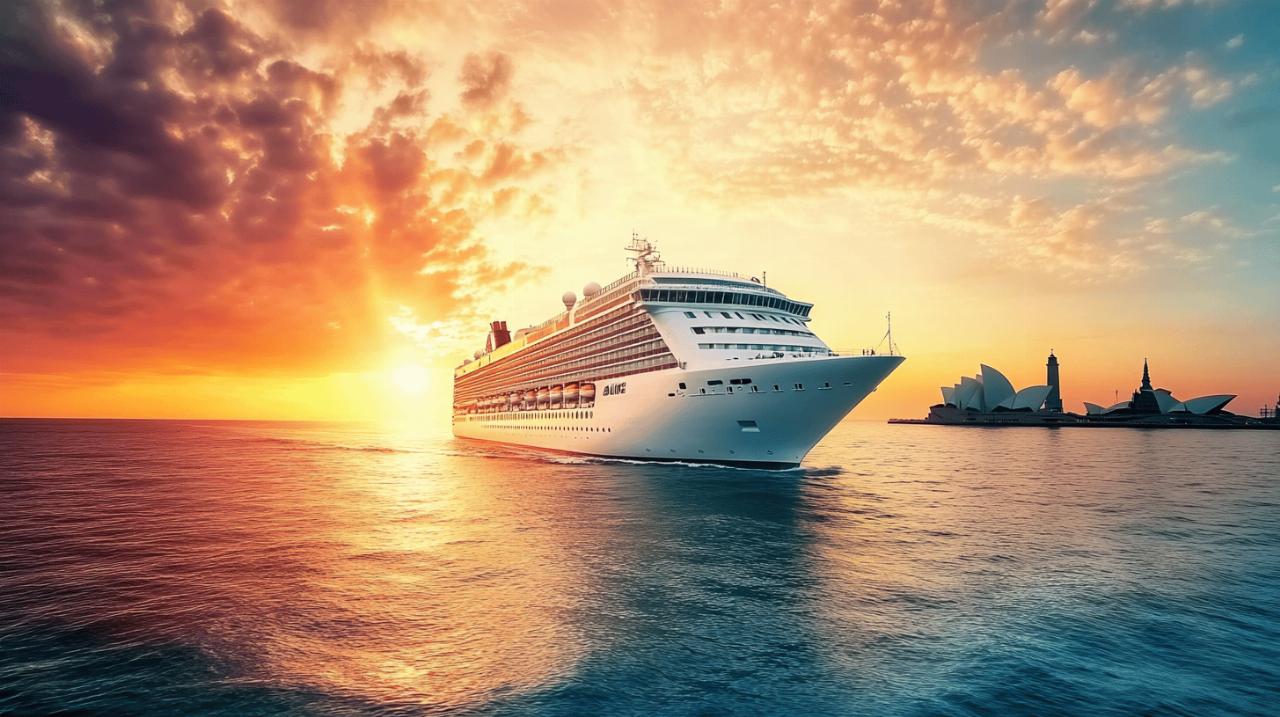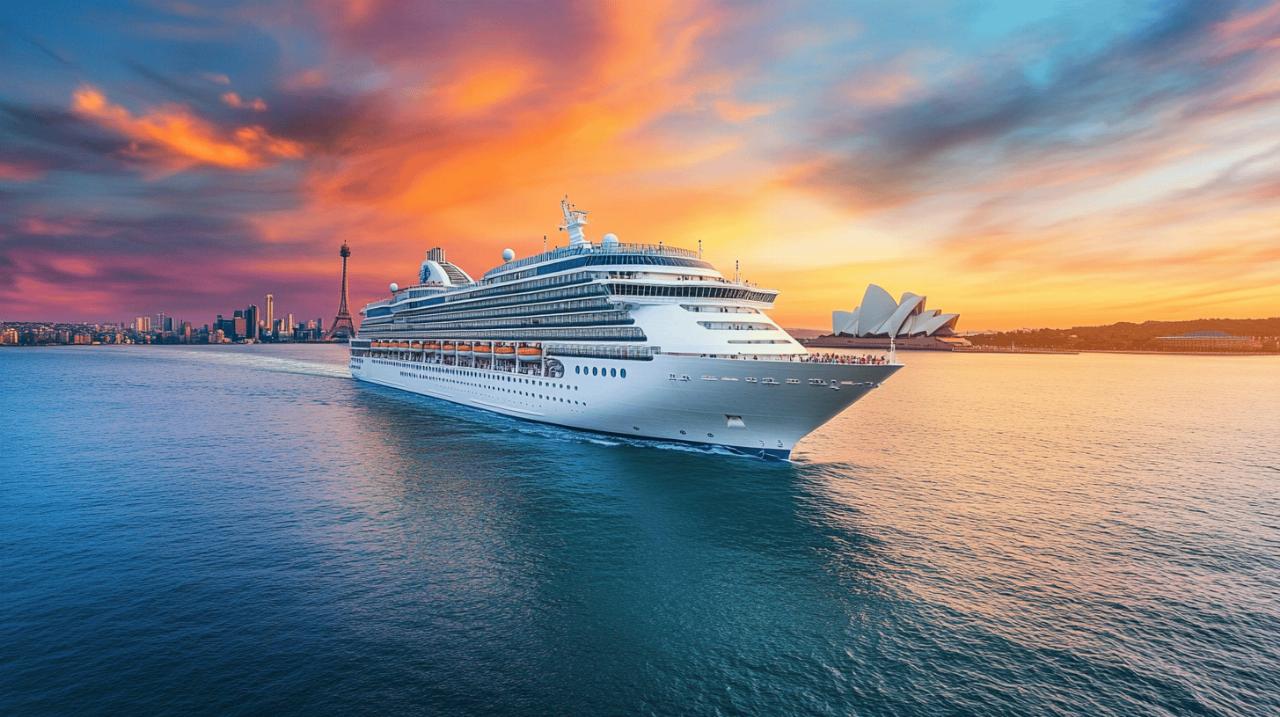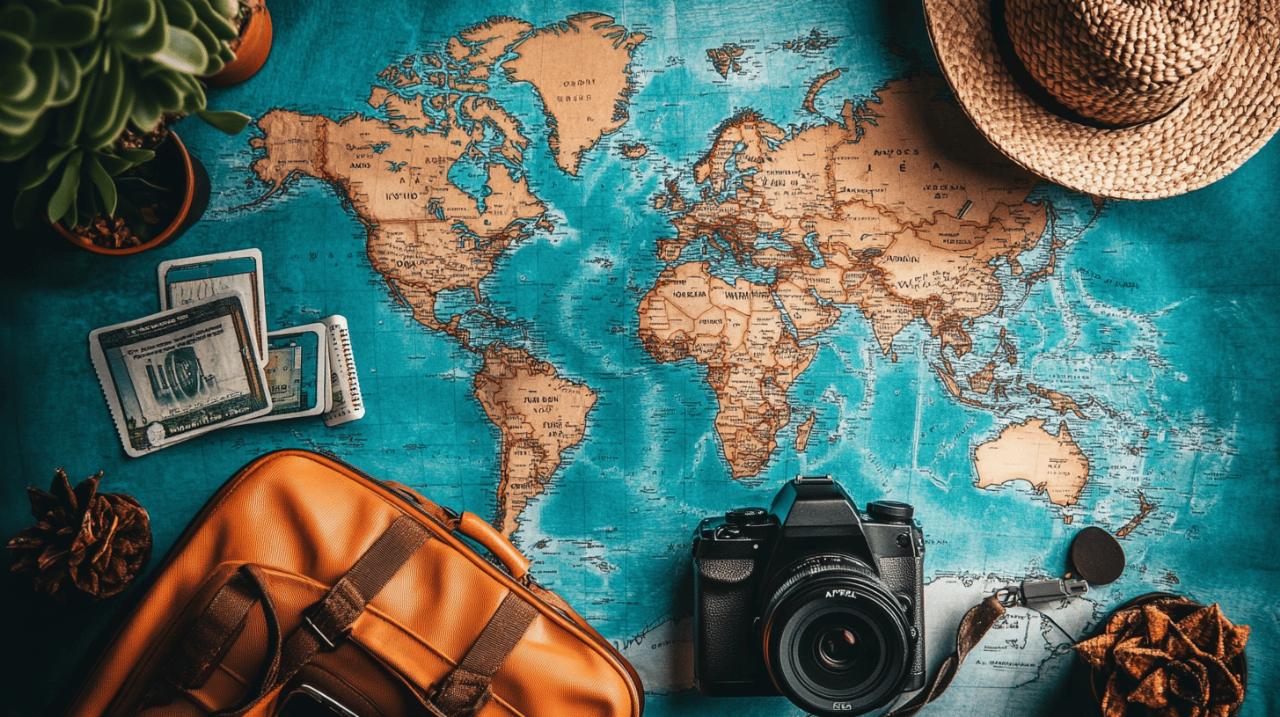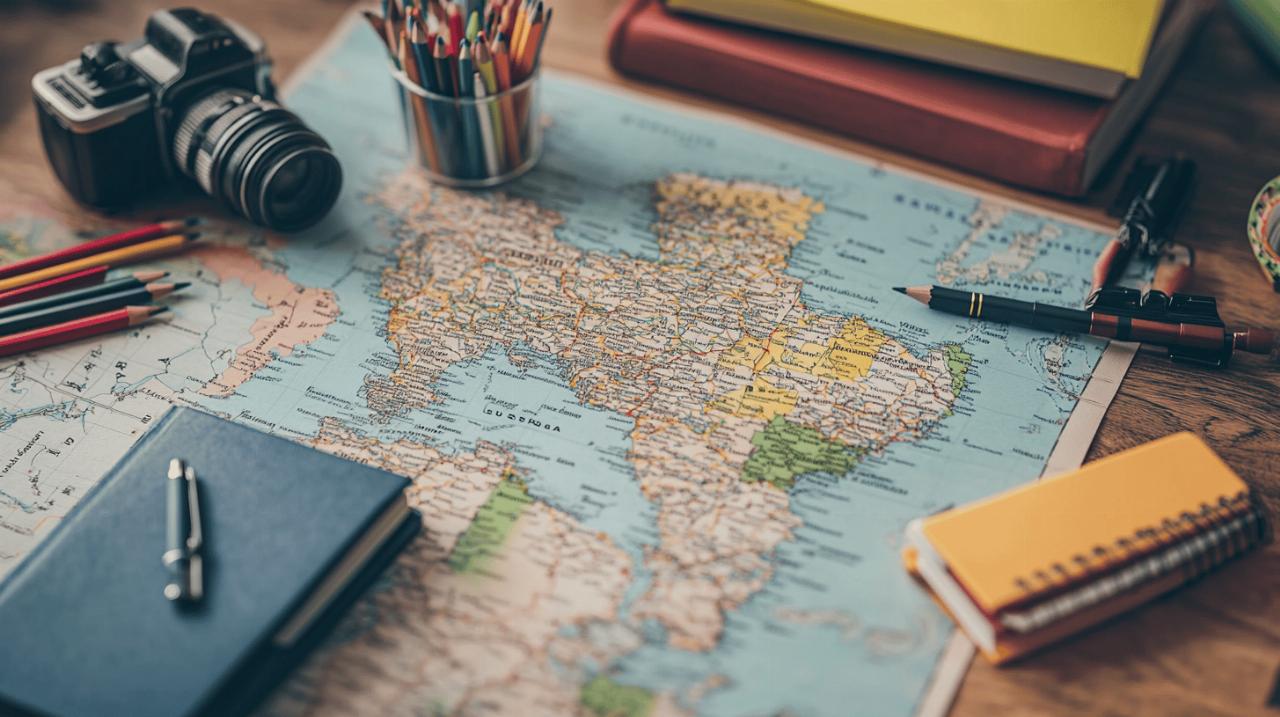Why Choose an All-Inclusive Round-the-World Cruise? The Security Protocols That Guarantee a Worry-Free Global Adventure
Setting off on a voyage that spans continents and oceans represents one of the most ambitious adventures a traveller can undertake. An all-inclusive round-the-world cruise offers a unique blend of luxury, convenience, and exploration, allowing passengers to experience diverse cultures and breathtaking destinations without the stress of constant replanning. This comprehensive approach to global travel combines meticulous safety standards with the comfort of a floating home, ensuring that your journey across international waters remains as secure as it is memorable.
The unrivalled convenience of all-inclusive world cruising
One of the most compelling reasons to embark on a world cruise is the sheer simplicity it brings to what would otherwise be an overwhelmingly complex endeavour. Rather than juggling dozens of flights, hotel reservations, and local transport arrangements across multiple continents, passengers find themselves with a single booking that covers accommodation, meals, and often a host of additional amenities. This all-inclusive model means that from the moment you step aboard, your cabin becomes your home, eliminating the need to pack and unpack repeatedly as you traverse the globe. The cruise takes care of the logistics, allowing you to focus entirely on immersing yourself in each destination without worrying about the next leg of your journey.
No hidden costs: understanding what's truly included in your fare
Transparency in pricing is a hallmark of reputable cruise operators, and understanding what your fare encompasses is crucial to planning a worry-free adventure. Typically, an all-inclusive package covers your cabin, all main meals, and access to a range of onboard facilities such as fitness classes, live entertainment, and swimming pools. Many cruise lines also include gratuities, evening turndown service, room service, and even complimentary ice cream and Wi-Fi, ensuring that unexpected expenses do not disrupt your budget. However, it is wise to clarify whether shore excursions, premium dining experiences, alcoholic beverages, and spa treatments are part of the package or require additional payment. Some luxury operators extend their all-inclusive offerings to encompass these extras, while others provide them as optional add-ons. By thoroughly reviewing what is included in your fare, you can avoid surprises and enjoy a seamless experience from departure to return.
Simplified planning: how one booking replaces dozens of arrangements
The logistics of planning a round-the-world journey independently can be daunting, involving countless hours researching flights, coordinating visas, and selecting hotels in unfamiliar cities. A world cruise consolidates this complexity into a single, straightforward booking process. The itinerary is meticulously crafted by experts who understand the nuances of global travel, ensuring that you arrive at each port with ample time to explore cultural landmarks and natural wonders. This approach not only saves time but also reduces the stress associated with missed connections, language barriers, and navigating foreign transport systems. For those who dream of seeing the world without the faff, a cruise offers a brilliant way to explore many destinations with ease, transforming what could be a logistical nightmare into a smooth and enjoyable adventure.
Comprehensive security measures across international waters
Safety is a paramount concern for anyone embarking on an extended voyage, and modern cruise ships are equipped with rigorous security protocols designed to protect passengers throughout their journey. These measures extend far beyond basic precautions, encompassing advanced technology, trained personnel, and strict adherence to international maritime regulations. From the moment you board, the cruise line assumes responsibility for your wellbeing, implementing systems that address everything from medical emergencies to potential security threats. This commitment to passenger protection is particularly important when travelling through diverse regions with varying levels of infrastructure and political stability, ensuring that you can enjoy your global adventure with peace of mind.
Onboard safety protocols: from medical facilities to emergency response teams
Cruise ships operating on round-the-world itineraries are equipped with comprehensive medical facilities staffed by qualified healthcare professionals, including doctors and nurses capable of handling a wide range of health issues. These onboard clinics are stocked with essential medications and diagnostic equipment, providing reassurance to passengers who may have concerns about accessing medical care in remote locations. In addition to healthcare services, ships maintain highly trained emergency response teams prepared to address any crisis, from natural disasters to onboard incidents. Regular safety drills familiarise passengers with evacuation procedures, and crew members undergo continuous training to ensure they can respond swiftly and effectively to any situation. The integration of advanced navigation systems and satellite communication further enhances safety, enabling constant monitoring of weather conditions and potential hazards along the route.
Port security and passenger protection during shore excursions
When the ship docks at ports around the world, the cruise line extends its security protocols to shore excursions, ensuring that passengers remain protected even when exploring unfamiliar destinations. Organised excursions are vetted by the cruise operator, with local guides and transport providers selected for their reliability and knowledge of the area. Security briefings are often provided before disembarkation, highlighting any specific concerns and offering practical advice for staying safe. Many cruise lines also coordinate with local authorities to ensure that passengers have access to secure transport and that excursions avoid areas with heightened risk. For those who prefer to explore independently, the ship's staff provide guidance on safe practices and keep passengers informed about local conditions, allowing you to enjoy cultural experiences with confidence.
Health and wellbeing safeguards throughout your voyage
 Maintaining health and wellbeing during an extended journey is essential, and cruise operators have developed comprehensive systems to safeguard passengers against illness and ensure access to high-quality care. These measures are particularly important on voyages that span multiple climates and regions, where exposure to different pathogens and environmental conditions can pose challenges. By implementing strict health protocols and offering robust medical support, cruise lines create an environment where passengers can focus on enjoying their adventure without unnecessary health concerns.
Maintaining health and wellbeing during an extended journey is essential, and cruise operators have developed comprehensive systems to safeguard passengers against illness and ensure access to high-quality care. These measures are particularly important on voyages that span multiple climates and regions, where exposure to different pathogens and environmental conditions can pose challenges. By implementing strict health protocols and offering robust medical support, cruise lines create an environment where passengers can focus on enjoying their adventure without unnecessary health concerns.
Medical Support and Health Screening Procedures at Sea
Before embarking on a world cruise, passengers may be required to undergo health screenings to ensure they are fit for travel and to prevent the spread of contagious illnesses onboard. These screenings, which can include temperature checks and health questionnaires, are part of a broader strategy to maintain a healthy environment throughout the voyage. Once at sea, the onboard medical team is available around the clock to address any health concerns, from minor ailments to more serious conditions requiring intervention. The ship's medical facilities are equipped to perform diagnostic tests, administer treatments, and, if necessary, arrange for emergency evacuations to shore-based hospitals. This level of medical support provides reassurance, particularly for passengers with pre-existing conditions or those travelling to remote areas where access to healthcare may be limited.
Food safety standards and dietary accommodation across multiple continents
Ensuring the safety and quality of food served onboard is a critical aspect of passenger wellbeing, and cruise lines adhere to stringent food safety standards that meet or exceed international regulations. Kitchens are subject to regular inspections, and all food handling procedures are designed to prevent contamination and illness. This rigorous approach to food safety is especially important on long voyages, where the ship must provision for extended periods and source ingredients from diverse locations. In addition to safety, cruise operators are increasingly adept at accommodating dietary preferences and restrictions, offering options for vegetarian, vegan, gluten-free, and allergen-free meals. The ability to enjoy high-quality, safe dining experiences across multiple continents is a significant advantage of all-inclusive cruising, ensuring that every meal contributes to the overall enjoyment of your journey.
Financial Protection and Travel Insurance for Round-the-World Voyages
Investing in a round-the-world cruise represents a substantial financial commitment, and protecting that investment is a priority for prudent travellers. Understanding the consumer protections available and securing appropriate travel insurance can safeguard against unforeseen circumstances that might otherwise disrupt your plans or result in financial loss. Cruise lines and booking agents offer various forms of financial protection, and it is essential to be aware of your rights and the options available to you.
Atol and abta protection: understanding your consumer rights
For travellers based in the United Kingdom, booking a cruise that includes flights may provide the benefit of ATOL protection, a financial safeguard managed by the Civil Aviation Authority. This protection ensures that if your travel provider becomes insolvent, you will receive a refund or be brought home if you are already abroad. Similarly, membership in ABTA, the Association of British Travel Agents, offers additional assurances that your booking is protected and that disputes can be resolved through an independent arbitration scheme. When booking a round-the-world cruise, it is advisable to verify that your travel provider holds these protections, as they provide an important layer of financial security. Understanding your consumer rights and the scope of these protections can help you make informed decisions and choose providers that prioritise your interests.
Flexible booking policies and what happens if plans change
Life is unpredictable, and even the most carefully laid travel plans can be disrupted by illness, family emergencies, or unforeseen events. Recognising this, many cruise operators have introduced flexible booking policies that allow passengers to amend or cancel their reservations with minimal penalty, particularly in the wake of global disruptions that have affected the travel industry. These policies can include options to rebook at a later date, transfer your booking to another voyage, or receive a credit towards future travel. It is crucial to review the terms and conditions of your booking carefully, paying particular attention to cancellation policies and any fees that may apply. Purchasing comprehensive travel insurance is also highly recommended, as it can cover a range of scenarios including trip cancellation, medical emergencies, and lost luggage. By combining flexible booking policies with robust travel insurance, you can embark on your round-the-world adventure with confidence, knowing that you are protected against the unexpected.



